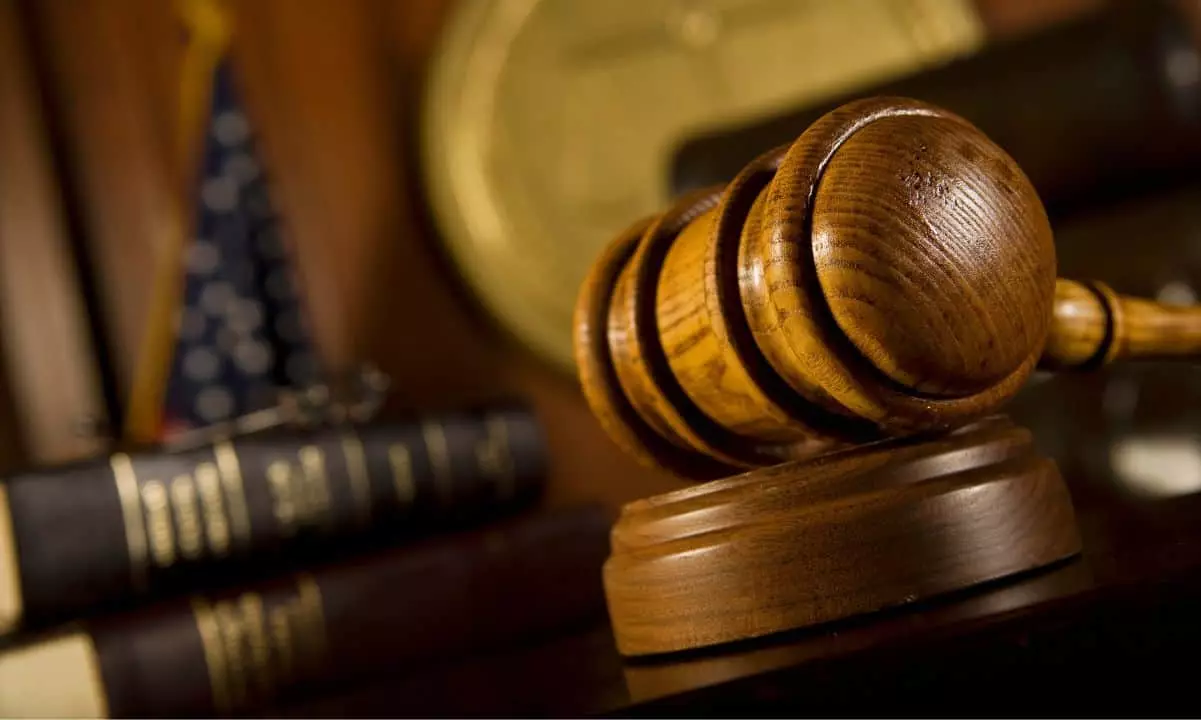In a remarkable case that intertwines technology, law, and the volatile world of cryptocurrencies, James Howells has launched a monumental lawsuit against Newport Council, targeting nearly 500 million pounds or approximately $646.4 million. At the heart of this dramatic confrontation lies a hard drive containing 8,000 Bitcoin that Howells claims he lost due to an unfortunate mix-up. His legal battle, which has been characterized as a “last resort,” underscores the complexities of asset recovery in the digital age, emphasizing the interplay of personal loss, public accountability, and evolving legal interpretations around cryptocurrency ownership.
An Incredible Claim for an Extraordinary Loss
Howells’s journey began in 2013 when, during a routine clean-up of his home office, he inadvertently disposed of a hard drive—one that he had used to mine Bitcoin during the cryptocurrency’s infancy. As an early adopter, Howells mined these coins at a low cost, but he now faces the stark reality of their skyrocketed market value. The fleeting nature of that incident has now grown into a legal battle over assets that could potentially exceed billions in worth should predictions about Bitcoin’s future hold true. His decision to file this suit follows more than a decade of seemingly fruitless negotiations with the council, which he accuses of largely disregarding his pleas for assistance.
Howells’s claim of nearly 500 million pounds is both a reflection of the past market value of the cryptocurrency and a strategic maneuver aimed at compelling the Newport Council to allow an excavation of its landfill. While presenting an astronomical figure, which could easily overwhelm any local authority, Howells contends that the actual valuation is secondary to the legal mechanics of driving cooperation from the council. His approach appears to be a bold attempt to alter the council’s stance by highlighting not only the potential financial ramifications of ignoring his request but also the innovative methods he proposes for excavation and recovery.
His proposed plan includes a £10 million ($13 million) excavation effort to be conducted at no cost to the council, along with a promise to share a portion of the recovered currency’s value—10%, to be precise. For Howells, this appears to be more than merely pursuing lost assets; it represents a relentless quest for justice in the face of years of apparent neglect from local authorities.
The case has also raised questions regarding environmental stewardship; Howells’s expert team suggests that the excavation could not only recover the lost Bitcoin but also bring technological advancements to a landfill that has faced issues with hazardous waste management. Interestingly, the council’s lawyers position themselves on the other side of legal ownership. They assert that once Howells discarded the hard drive, it became property of the council, complicating the narrative of ownership while reinforcing the complexities tied to accidental asset abandonment.
The task of excavation presents its own unique challenges, according to Howells’s experts, who believe there is an 80% chance of retrieving data from the lost hard drive. They plan to employ AI technology to assist in the process, promising a methodical and careful approach to both recovery and subsequent environmental remediation. This assertion, while visionary, has been met with skepticism by the council’s representation, who contend that Howells’s claims are fundamentally flawed and display significant weaknesses.
As the case approaches its court date in December, uncertainty looms for both sides. Howells, a determined figure who has pivoted his career towards this recovery effort, maintains a resilient spirit, vowing to fight until a judicial decision renders his efforts moot. For the Newport Council, the case poses a critical precedent regarding the intersection of public governance, technological innovation, and the evolving landscape of cryptocurrency.
The outcome of this dispute will likely resonate beyond the boundaries of Newport, potentially influencing how local governments handle similar incidents where digital assets are lost or abandoned. As the legal landscape surrounding cryptocurrencies continues to take shape, one can only speculate on the broader implications of this high-stakes battle. In a world where digital assets hold immense value, the claim for recovery by one man by leveraging the legal system could prompt a reassessment of how society views ownership, responsibility, and the often precarious nature of technological dependencies.











